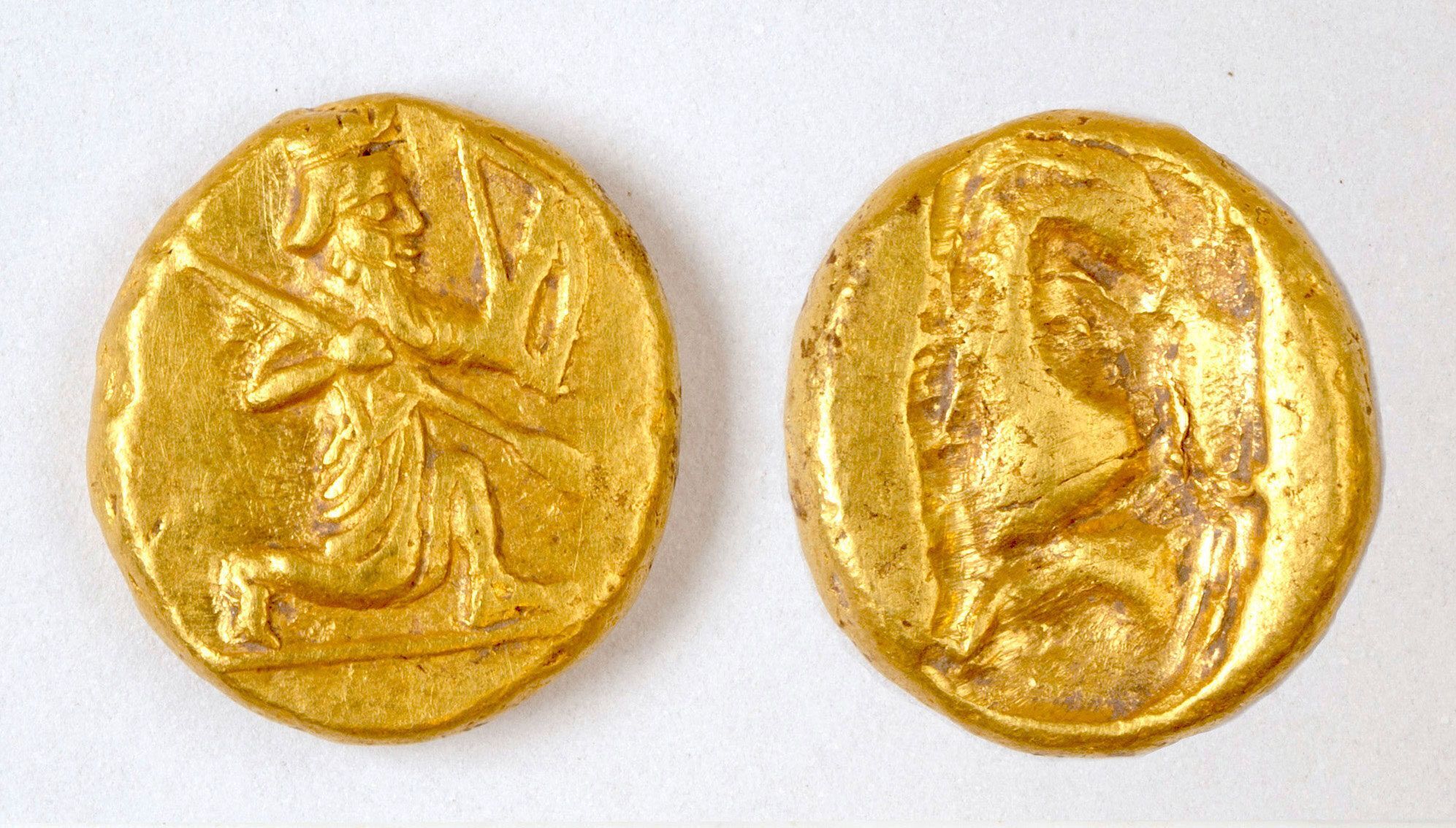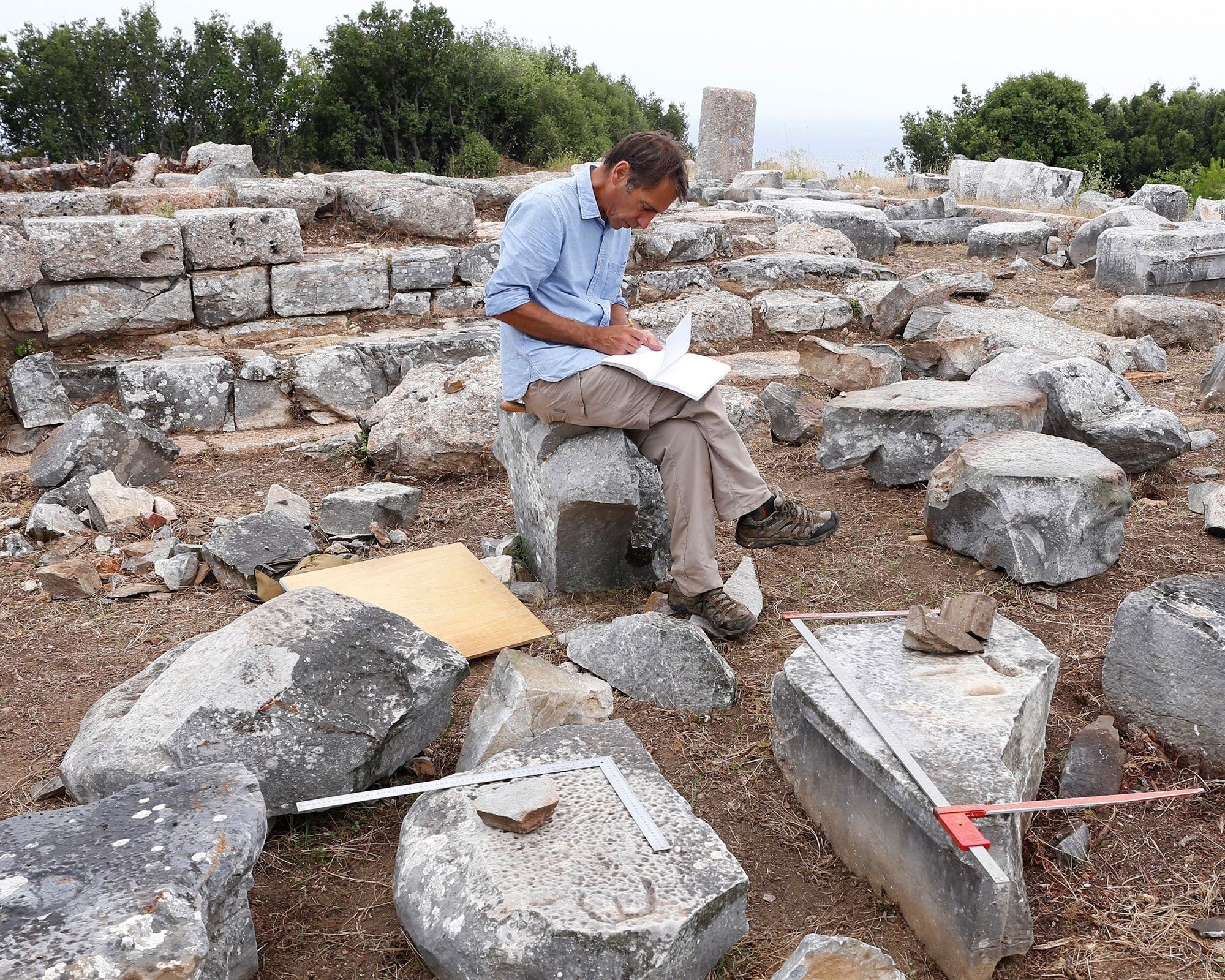News
In Turkey, archaeologists accidentally discovered a pot with gold coins from 2400 years ago. Photo
Archaeologists from the University of Michigan have found a pot containing ancient opera gold coins in the ancient city of Noytsion in western Turkey. The researchers first discovered a small clay jug called olpe, with dozens of gold coins known as darik hidden inside.
The ancient treasure of Persian coins provides insight into the political landscape during the Peloponnesian War. This treasury of coins is believed to have been buried some 2,400 years ago, Arkeo News writes.
The coins found depict the figure of a kneeling archer, a design element of the Persian daric, a gold coin issued by the Persian Empire. According to a statement from the University of Michigan, the currency was probably minted in Sardis, located 95 kilometers northeast of the city of Neuzion. The design of the daric remained unchanged from the late sixth century BC until the conquest of the Persian Empire by Alexander the Great in 330 BC.
"The coins were buried in a corner of an old building. We weren't really looking for a pot of gold," said University of Michigan archaeologist Christopher Ratte.
"Discovering such a valuable find during a controlled archaeological excavation is very rare. No one ever hides a hoard of coins, especially precious metal coins, without the intention of taking them. Therefore, only the gravest misfortune can explain the preservation of such a hoard," he added.
In the fifth century BC, darics were mainly used to pay soldiers and mercenaries, with one daric equaling a month's salary, so the archaeologist speculated that one such soldier may have buried his savings, representing years' pay, in the jar before being killed in battle.
The excavation by this team of archaeologists from the University of Michigan, Sinop University and the Turkish Ministry of Culture and Tourism was set to begin in 2022.
Oxford University archaeologist Andrew Meadows, who was not involved in the excavation, said he was not aware of any other caches of gold coins of this type ever found in Asia Minor. "This find is extremely important. The archaeological context of the hoard will help us clarify the chronology of Achaemenid gold coins," he said.
For now, the coins are stored in the Ephesus Archaeological Museum in Selcuk, Turkey, along with other artifacts found at the site.
Only verified information from us in Telegram-channel OBOZ.UA and Viber. Do not fall for fakes!





























